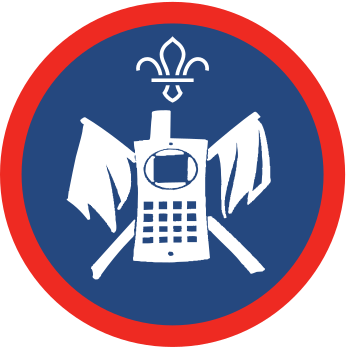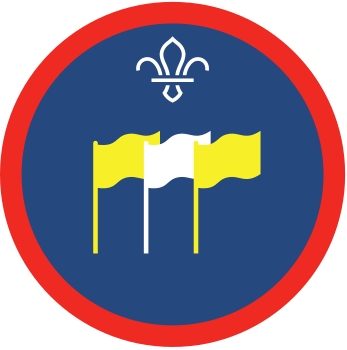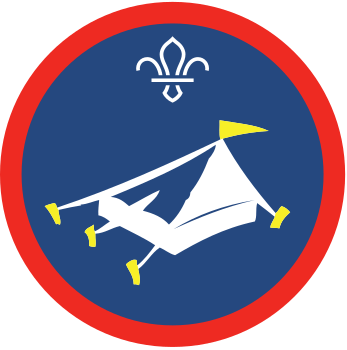Learn how to plan for camping abroad
You’ll need
- Tables
- Chairs
- Big pieces of paper
- Coloured pens or pencils
Before you begin
- Use the safety checklist to help you plan and risk assess your activity. Additional help to carry out your risk assessment, including examples can be found here. Don’t forget to make sure all young people and adults involved in the activity know how to take part safely.
- Make sure you’ll have enough adult helpers. You may need some parents and carers to help if you’re short on helpers.
Setting up the activity
- Print copies of the ‘Group help sheet’, enough for one per group.
- Print one copy of the ‘Leader help sheet’.
- Create a table with a column for each group. Use this to keep track of how much each group spends and what they’ve bought.
- Make some equipment tokens to represent the equipment listed on the ‘Leader help sheet’.
- For each group, put out tables and chairs, both sizes of paper, writing materials, coloured pencils and a copy of the ‘Group help sheet’.
- For the ‘campsite manager’, set up a table and chair, equipment tokens, record sheet, writing materials and a copy of the ‘Leader help sheet’.
Setting the scene
- Gather everyone together.
- Explain that, in groups of 5, everyone will be creating a plan for a weekend camp in Spain. The camp will be for 12 people and each group’s budget is €1,800. All equipment and activities need to be ‘booked’ by talking to the campsite manager, who only speaks Spanish.
- Set some ground rules and guidelines for the groups, depending on their level of Spanish and camping experience.
- You should think about dilemmas, such as how many activities each camp should have and how many people can sleep in one tent. You can refer to the ‘Leader help sheet’ for further guidance.
Time to camp
- Everyone should get into their groups.
- They have 30 minutes to set up their weekend camp.
- Everyone should start by drawing a sketch of their campsite on A3 paper, setting out what goes where and deciding what equipment they’ll need, where to set it up and where to store it.
- Groups should then plan out their activities for the weekend, using as much detail as possible, and make a schedule of when the activities will happen. However, campsites and activities need to be kept within the budget.
- Remind groups to delegate tasks, so that they can stay on top of everything, including the budget. They should make sure each person contributes to their group’s plan.
- When they're ready, each team should take turns to go and speak to the campsite manager. They need to obtain equipment for camping and activities in this way. The campsite manager should make a note of who buys what and how much they paid, and everyone should remember to introduce themselves!
- Depending on how strict your ground rules are for this activity, some groups could end up spending less than others by securing discounts or by enquiring about group rates. They might also save some money by being polite and speaking lots of Spanish, or by being thrifty with equipment and materials. Groups should plan their approach carefully to make sure they spend as little as possible.
- You could have a volunteer or young leader walk among the groups to check on their plans and budgets. They could pretend to be a rep with the company you booked your trip with!
- When the time’s up, have each group present their proposition for a weekend camp in Spain, outlining what their pitch should look like and what activities they’ve got planned.
Reflection
Using a different language for something so important can be challenging.
Was everyone able to negotiate in Spanish with the campsite manager to create a fun-filled camp that was in budget?
Pronouncing the Spanish words clearly and accurately was key to quickly communicating what you needed and making a deal. It was also important to be friendly and polite. There’s no prize for who knows the most words in Spanish, but quite often being friendly and listening when others speak can get you a long way!
A new language can help you do all sorts of things all around the world. Spanish is especially useful and that’s why it’s taught in lots of schools. How many countries around the world can you name where Spanish is the first or second language?
How many can you name that speak a similar language to Spanish? The more people are able to understand you, the more experiences you’ll get from new countries and cultures, and this is one of the joys of travel.
Safety
All activities must be safely managed. You must complete a thorough risk assessment and take appropriate steps to reduce risk. Use the safety checklist to help you plan and risk assess your activity. Always get approval for the activity, and have suitable supervision and an InTouch process.
The ground rules or guidelines will make this activity easier or harder. You could make things easier by allowing more than one person at a time to speak to the campsite manager. You could also make things harder by having groups present some of their ideas at the end in Spanish.
Anyone not confident speaking Spanish could write down their query to pass to the campsite manager. You may want to leave out some Spanish dictionaries.
Similarly, anyone not confident presenting their camp plan in front of everyone could contribute by preparing materials or holding up the sketch of the campsite.
All Scout activities should be inclusive and accessible.
To take this further, the group could be involved in planning a real budget and activities, with the support of the volunteer team, for an upcoming camp.
This activity allows everyone the opportunity to practice their Spanish-speaking skills and plan and design their own campsite. Consider letting young people set their own guidelines for the activity or choose another language they’re more confident with.


